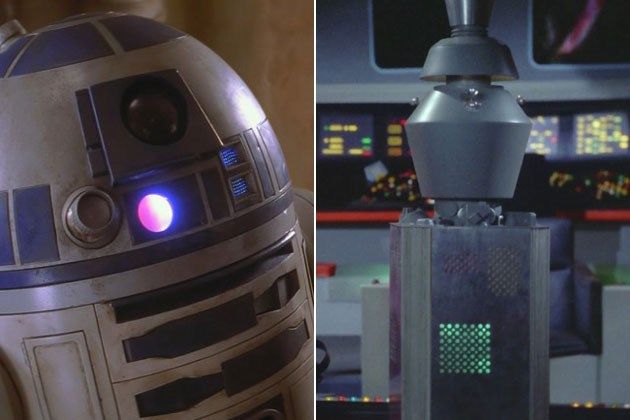 After far too long away from the game, Neill Blomkamp returns this year with his highly anticipated follow-up to District 9: the Matt Damon-starring Elysium.
After far too long away from the game, Neill Blomkamp returns this year with his highly anticipated follow-up to District 9: the Matt Damon-starring Elysium. Blomkamp exploded from out of nowhere in 2009 with his analogous, modern Sci-fi masterpiece, and it instantly marked him as one to watch for the future. With 4 (count ‘em!) Academy nods and heaps of praise from all quarters, excitement is understandably building for his second feature. Here are a few things we can expect from Elysium…
Turns out it was Earth all along. Blomkamp pulled an interesting little trick by using District 9‘s human/alien segregation to explore apartheid and themes of segregation. Some of the best Sci-fi works as a kind of defamiliarisation, in that it takes a facet of life as we know it and twists it into something simultaneously alien and eerily familiar. Look at something like Invasion of the Body Snatchers (1978) – it encapsulates the paranoia of the era (Watergate, anyone?) perfectly, and in a way that is removed enough from its source to make for a non-preachy piece of entertainment. It’s a fine line of course, what with Avatar‘s gorgeous looks and pure entertainment value not quite distracting from its bludgeoning message of “Umm…the war in Iraq is bad mmkay?” It’s made fairly clear that apartheid is the major issue that is being examined in District 9, but it focuses upon the very issue itself, rather than having some gung-ho soldiers with a collective social conscience kicking against the injustices of a brutal ruling regime. Sure, protagonist Wikus (Sharlto Copley) does come around to the injustices, but only because he has been implicated in the alien struggle purely by accident. His transformation into one of the creatures is terrifying and visceral; an exaggerated comment on just how difficult it is for South Africa to face up to its past. It works because it distracts us with its winning combination of body-horror and emphasis on character over theme.
The first half-hour is unsettling to say the least. Forced evictions, slums, murdered non-conformists and the burning of alien spawn paint an uncomfortable picture. It is the novelty side of things that make the film so impressive: found-footage style, alien invaders who don’t really want to invade, and the Johannesburg setting seemingly make things too far removed from reality. Acknowledging the camera serves to heighten the fiction when we see it on a big screen, non-aggressive invaders seem somewhat silly and Johannesburg is so far away that it might as well be Oz. However, the things that initially alienate the film from the real world seem sinister when examined. The found-footage approach mostly gives way shortly after the initial eviction scene, shifting focus from the overarching theme to the human involvement therein, which feels a little more real. Those easily penned-in aliens seem a little too human in their weakness and compliance. Throw a vicious Nigerian gang into the slums of District 9 and you’ve got an analogy for every broken-down neighbourhood and slum ever to exist. Crime moves in and takes advantage, the government leaves things be until the issue gets too close to the “nicer” parts of town, and only then is action taken. You only have to look up District Six in South Africa’s recent history to see the kinds of things Blomkamp is getting at in District 9.
Such an assured approach to his debut suggests that Elysium‘s thematic ideas will be handled in a similarly impressive manner. The plot of Elysium seems loaded with allusion to the whole Occupy Movement, 99%-ers business etc. In the film, the wealthiest of the wealthy live on a space station, far away from the poor who have been left on a decaying planet Earth. That one line of plot screams “WE ARE THE 99%!”, doesn’t it? The issue may be a fairly cheap one to address right now. The Dark Knight Rises, for example, has already had a go at it. The problem with TDKR‘s attempt is simple: it all looks too familiar. Every man and his boy-wonder side-kick knows that Gotham City is just the gritty parts of New York on a bad day. That being said, it’s no stretch to imagine that there is also a “money” element to Gotham; a place where the rich can look down upon the poor with a grimace. You don’t have to squint too hard to make the Gotham Stock Exchange look a lot like Wall Street. The idea is generally undercooked, what with the comic book constraints that must ultimately limit even the greatest adaptations of the medium’s best work, yet it does make for intriguing viewing. With a more concerted effort and a script not restricted by the laws of adaptation, Neill Blomkamp should find himself with significantly more fertile ground to work from than his peers. We could potentially be looking at the first great Sci-fi film to address the financial state of our time.
The foundations that Blomkamp has laid down with District 9 seem to have attracted a veritable dream-team of talent and perks. First off, the reported $100,000,000 budget is a massive step up from the $30,000,000 that Blomkamp managed to do so much with in his debut feature. District 9 succeeded in its attempt at a tricky illusion: making a relatively low-budget Sci-fi look like a genuine Hollywood blockbuster. Just imagine what the people behind the undeniably visually-impressive District 9 can do with a massively inflated budget.
Of course, inflated budget does not necessarily mean a better movie. They gave Richard Kelly almost $20,000,000 to follow up the comparatively cheap Donnie Darko, and what happened? I’ll tell you what happened: the critical and commercial flop that is Southland Tales, which managed only around half a million dollars worldwide during its cinematic run. Personally, I don’t have too many qualms with it as a film, but it certainly is a disappointment when you consider just how good Donnie Darko was. The recent Transformers franchise proves that an ever-expanding budget doesn’t buy you a good movie. The first installment was grounded in humanity, the story of a boy buying his first car is timeless. Then came the robots, you know, that staple of adolescence. An extra $50,000,000 on each of the sequels did more harm than good, with the franchise leaning more upon the jaw-dropping special effects than any kind of humanity. I swear, Revenge of the Fallen had some of the worst character development I have ever seen. Megan Fox stand close to Shia LaBeouf, some moody music plays, then the camera runs around them in a circle. It’s not exactly expertly crafted dramatic framing, is it? Revenge of the Fallen acts as a cautionary tale for Sci-fi/action movies, in that it showed the results of what happens when special effects become the focus of a film. Sure, it’s great to look at, but you just don’t feel invested in the characters. The fact that I cared far more for the machines than any human character is pretty damning.
In contrast, take a look at District 9. Blomkamp has crafted a protagonist with an easily-identifiable persona and enough backstory-heft to make it easy to care for him. Wikus is flawed and very human, but he is also tragic. His Kafkaesque transformation is engaging, and even though the writing is deserving of praise, Sharlto Copley’s grounded and believable performance is the key to success. His dorky office worker is relatable (anyone who has ever worked in an office will know someone like him), and the familial touches – his birthday party, for example – are handled brilliantly by Copley. His desperation is palpable, and even his less-noble acts later on are made understandable by Copley’s natural translation of the character.
The follow-up to a debut hit is always tricky business. I mentioned Richard Kelly earlier, and he’s not the only director to stumble at the second picture. Rian Johnson burst onto the scene with high-school noir flick Brick, then lost a lot of goodwill with the throwaway The Brothers Bloom. He bounced back last year with Looper, but that doesn’t disguise the fact that his second film was not quite up to scratch. Then again, some directors have succeeded in impressively following-up, and even bettering, their debut. Tarantino is a startling example of this – somehow eclipsing the refreshing Reservoir Dogs with Pulp Fiction.
If you’re a fan of Sci-fi, you’ll know that there is some exciting talent out there. Alex Garland, who wrote screenplays for Dredd, Never Let Me Go and the criminally underrated Sunshine is a great example. It is important that new talent is encouraged within the genre. (An interesting note: Garland originally wrote a treatment for the long-awaited Halo movie, whilst Blomkamp has been rumoured as a possibility to direct). It’s genuinely inspiring to see that there are plenty of possible maestros being given their chance. Gareth Evans may be a controversial choice for the Godzilla reboot, but it is a great show of faith in young talent. Similarly, Josh Trank is attached to the latest attempt at a Fantastic Four movie, and after Chronicle, it seems that the sky is the limit for that young man.
Blomkamp has already shown flashes of a special talent, and Matt Damon has said of his director that he may well be this generation’s James Cameron. Hopefully Blomkamp will conduct himself with a higher degree of subtlety than Mr. Cameron, but it is high praise from a man who has worked with his fair share of quality directors. Elysium is, without doubt, a make-or-break moment, but with so much promise shown in District 9, it seems impossible to think that Blomkamp will waste his opportunity. Sci-fi is a genre ripe with potential for social commentary, philosophical debate and some good old-fashioned balls-to-the-wall action. Such a thrilling prospect is not often found in other genres due to their familiarity with the “real world”, and Neill Blomkamp could prove to be the leading light in one of the most talented batches of Sci-fi talent that has ever been.
SOURCE 2































